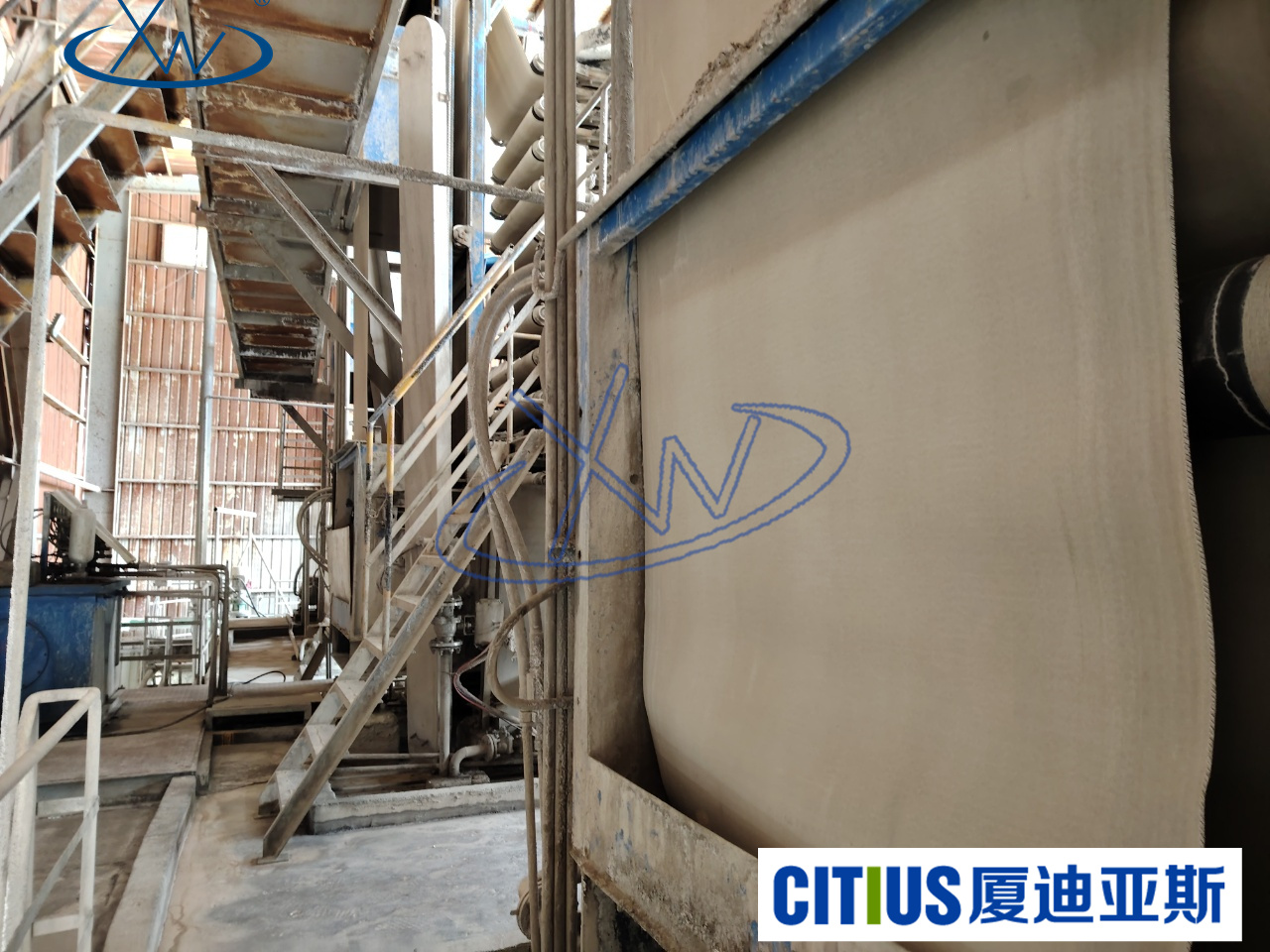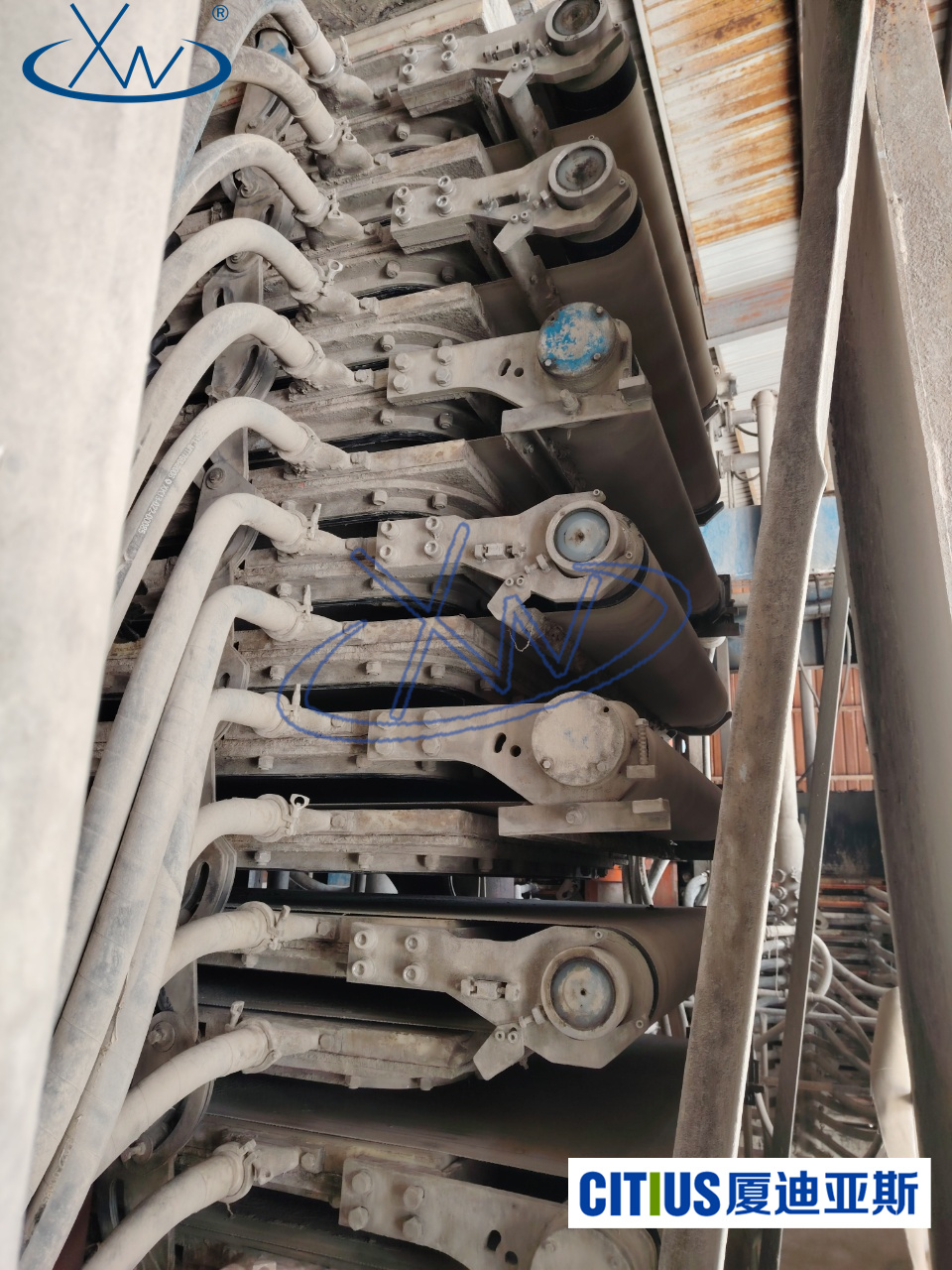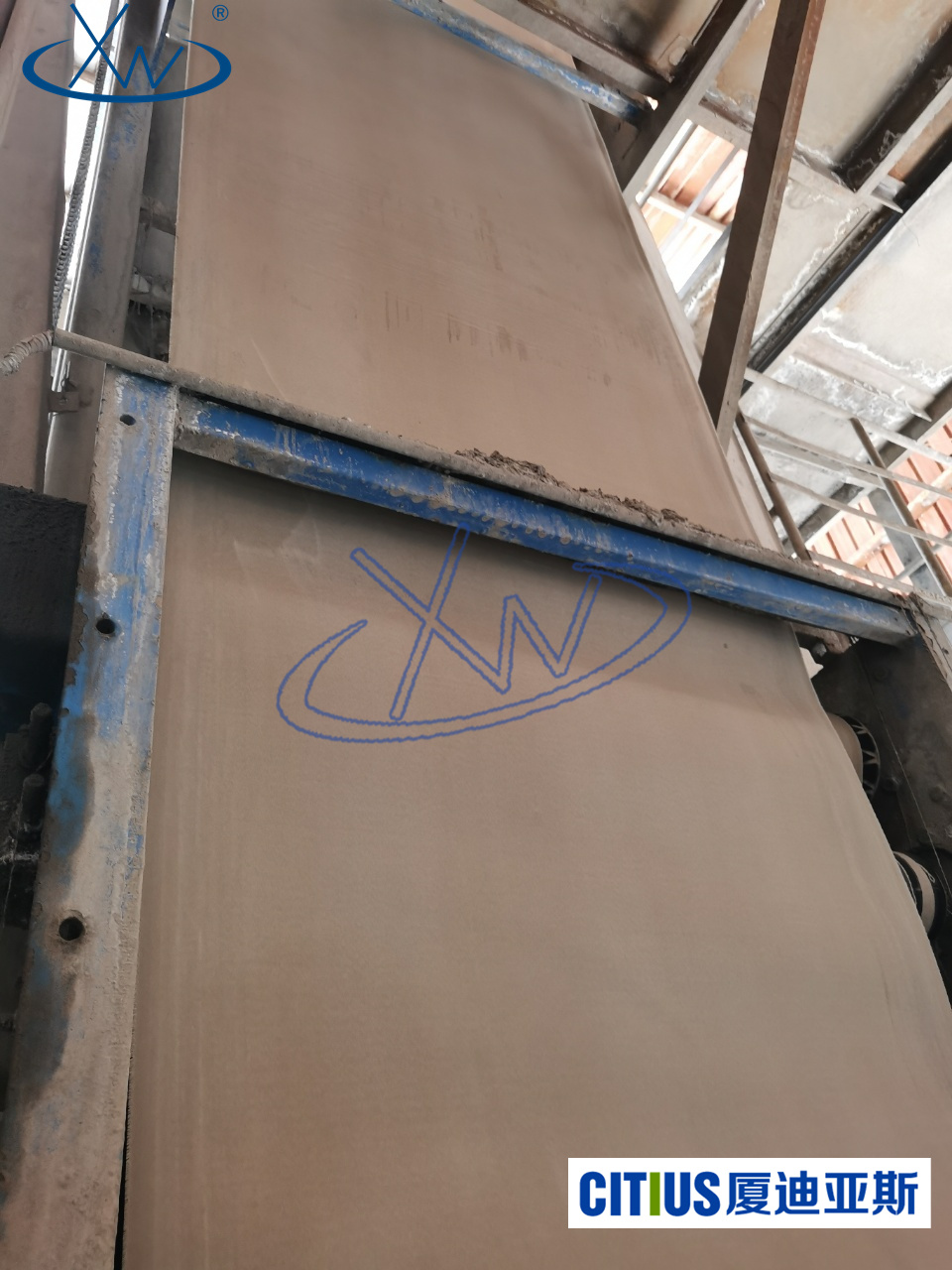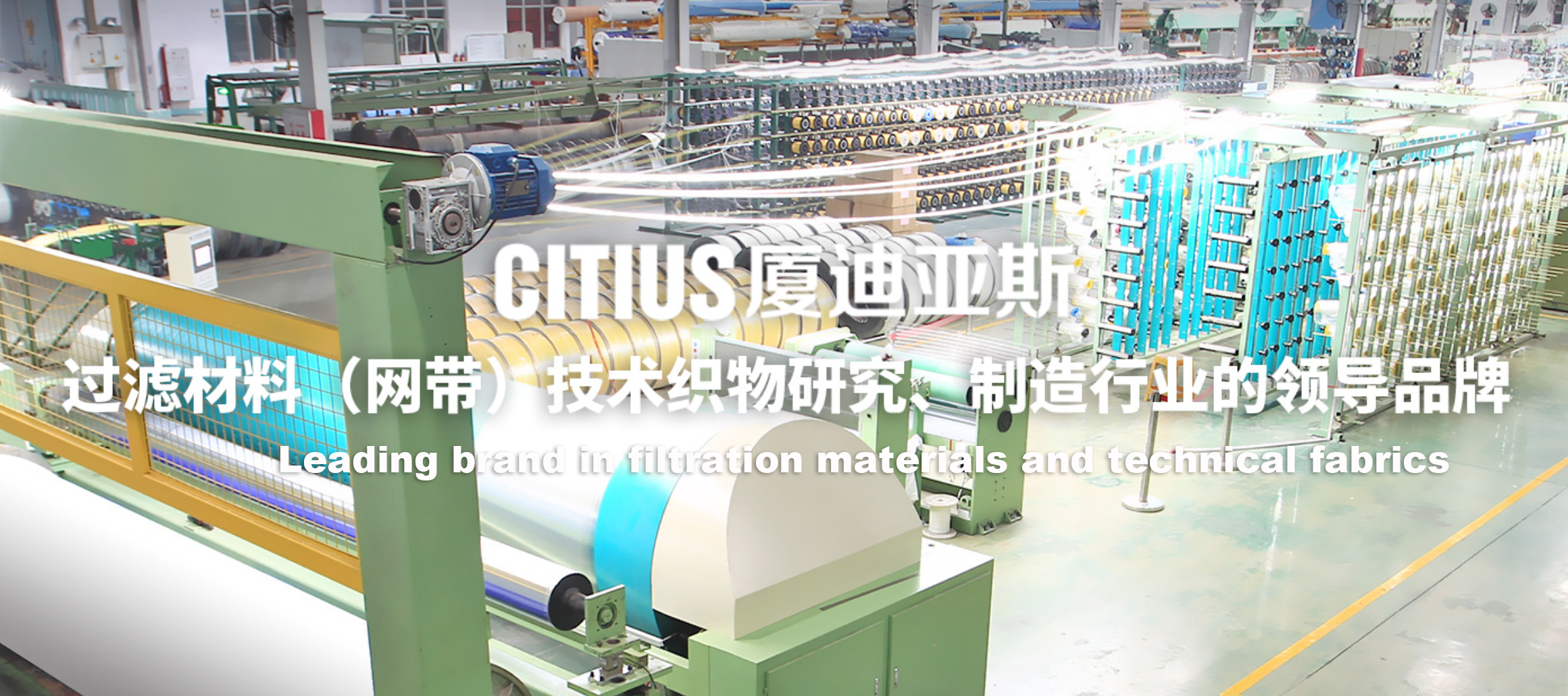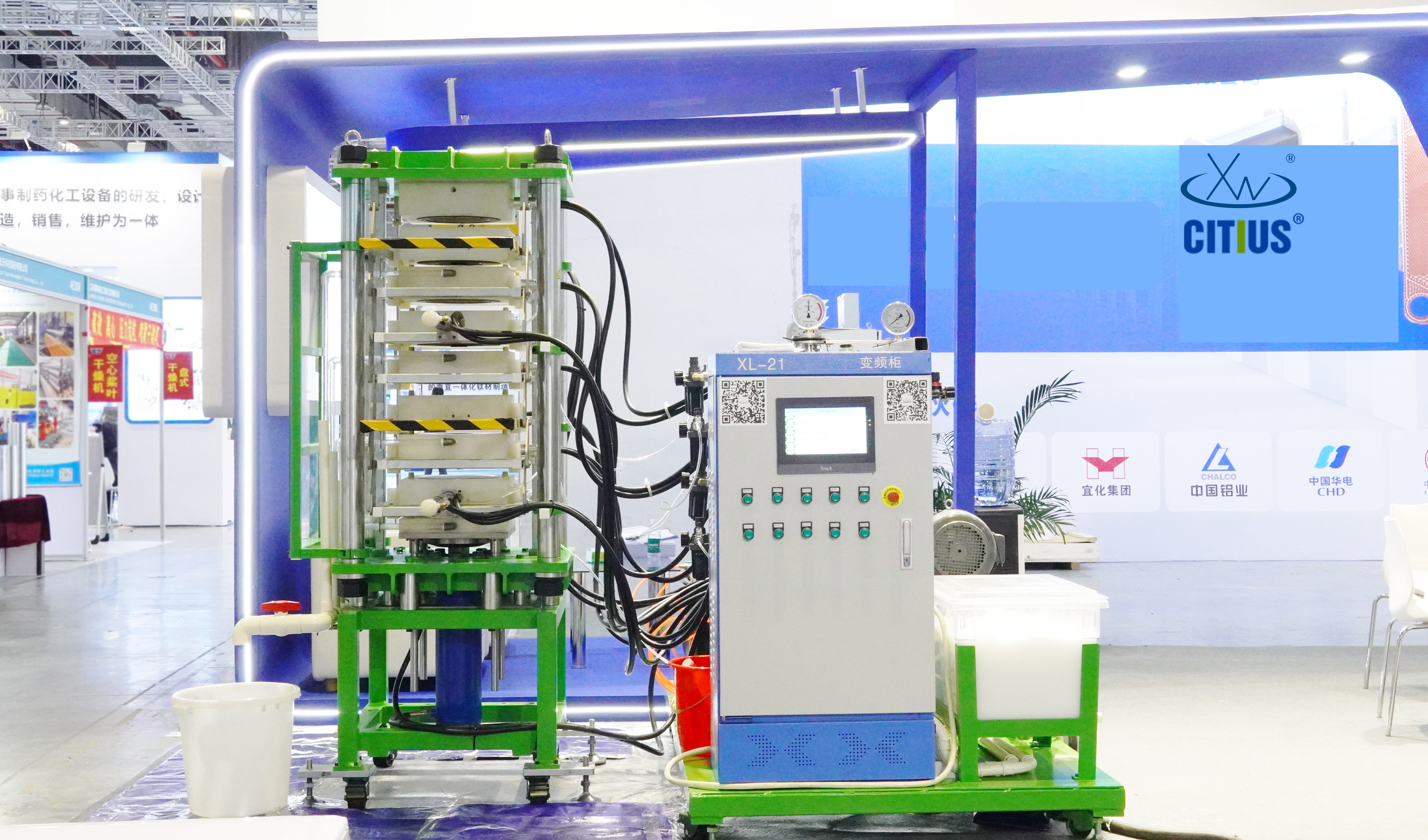Efficient Filtration, Green Mineral Selection - Practice and Exploration of Xiadyas Industrial Filter Cloth in Vertical Filter Press Treatment of Phosphate Tailings
Release time:
2025-05-07
In “ dual carbon ” Under the guidance of the strategic initiative, the construction of green mines, comprehensive utilization of resources, and environmentally friendly ore dressing technologies have become the main theme of contemporary mining development. Phosphate rock, as an important strategic resource, is widely used in agriculture, chemical industry, metallurgy and other fields. However, the large amount of phosphogypsum produced during its mining and beneficiation process has long faced the problems of difficult dehydration, difficult storage, and great environmental pressure. As one of the core consumables of industrial filtration systems, the performance of filter cloth directly determines the efficiency and cost of tailings treatment. This article focuses on the application of industrial filter cloth developed and produced by Xiamen Xiadias Filtration Materials Technology Co., Ltd. (hereinafter referred to as “ Xiadias ” ) in vertical filter presses for phosphogypsum dehydration, and discusses its technological advantages and green value in actual ore dressing scenarios.
I. Challenges and process requirements for phosphogypsum dehydration
Phosphogypsum mainly comes from the tailings pulp after the flotation process of phosphate ore, and is characterized by low solid content, fine particle size, and high viscosity. These characteristics make its dehydration process more complex. Traditional concentration — natural sedimentation — The dry stacking method is inefficient in handling high-moisture tailings, occupies a large area, and the construction of tailings ponds poses safety hazards. In order to meet the multiple needs of water conservation and emission reduction, efficient utilization and safe storage, more and more phosphate mining enterprises have begun to use efficient press filtration equipment for mechanical dehydration of tailings in recent years.
Vertical filter press, as a new generation of high-efficiency solid-liquid separation equipment, has gradually become the first choice for phosphogypsum dehydration process due to its advantages of small footprint, low filter cake moisture content, and high degree of automation. In this equipment, the filter cloth, as the core filtration medium, not only undertakes the main task of solid-liquid separation, but also directly affects the filtration speed, filter cake dryness, operation stability and service life of the equipment.
II. Xiadias filter cloth: the ideal “ partner ”
Xiadias focuses on the research and manufacturing of filtration material (belt) technology textiles. For thirty years, it has been deeply involved in the field of industrial filtration, accumulating rich application experience and material systems. Targeting the particle characteristics of phosphogypsum and the operating conditions of vertical filter presses, Xiadias has developed a number of highly adaptable filter cloth products, which have been put into batch application in many phosphate mining enterprises in China.
1. Precisely matched filter cloth structure for rapid dehydration
During the press filtration process, the filter cloth needs to have good water permeability, anti-blocking performance and mechanical strength. According to the characteristics of high fine particle content and easy blocking of phosphogypsum, Xiadias has designed multi-layer composite filter cloth products. The inner layer fine weaving layer intercepts fine solids, and the outer layer support structure ensures the strength and stiffness of the filter cloth. The whole forms “ rapid dehydration — efficient stripping — easy regeneration ” of closed-loop performance advantages.
2. Acid and alkali resistance, wear resistance, prolonging service life
Phosphate tailings pulp often contains weak acid or flocculant residues, which puts high demands on the chemical resistance of filter cloth materials. Xiadias improves the durability of filter cloth under high-pressure filtration, high wear and tear, and slightly acidic environment through independent proportioning and post-processing technology. Even under continuous operation and high-frequency washing conditions, its filter cloth products can maintain stable filtration accuracy and fabric strength, significantly reducing replacement frequency and maintenance costs.
3. Process customization to adapt to complex scenarios
The composition of phosphate tailings pulp varies greatly among different mines. Xiadias provides customized solutions: from the number of filter cloth meshes, thickness, air permeability, to edge sealing methods, reinforcement treatment to prevent edge leakage, and even supporting filter cloth cleaning schemes, all can be tailored to customer’s actual needs to ensure optimal operation.
III. Actual case: Xiadias solution in phosphogypsum dry discharge project “ Xiadias solution ”
Taking a large phosphate mine enterprise in Guizhou as an example, the annual tailings output of this enterprise exceeds 100 tens of thousands of tons. The original dehydration process uses thickeners plus vacuum filtration, and the filter cake moisture content is higher than 25% ,and the storage pressure is high. Since the introduction of Xiadias filter cloth and vertical filter press, through a series of parameter optimization and filter cloth replacement, the system operation has been significantly improved:
- The moisture content of the filter cake is reduced to 16%-18% ,meeting the requirements of tailings dry stacking and comprehensive utilization;
- The service life of the filter cloth is extended by about 30% ,and the operational stability is greatly improved;
- The filtration cycle is shortened, and the processing capacity is increased by 20% or more;
- The water recycling rate of the whole process is improved, effectively reducing the pressure on water resources.
The project manager said that Xiadias not only provided high-quality filter cloth products, but also sent a technical team to provide on-site service during the commissioning stage, assisting in the completion of filter cloth installation and commissioning, press filtration parameter setting and filter cloth maintenance training, achieving a dual blessing of technology and service.
IV. Technology leader in the new stage of green mining
From tailings environmental protection treatment to efficient resource utilization, the responsibility of mining enterprises is no longer limited to economic output. Xiadias adheres to “ high-performance industrial filtration ” technology concept, deeply participating in the green transformation of the ore dressing industry. In the typical scenario of phosphogypsum dry discharge, Xiadias' filter cloth products not only undertake basic separation tasks, but also are a key link in the entire mine environmental protection and governance system.
With the increasingly strict approval of the construction of new tailings ponds, the promotion speed of dry discharge equipment such as vertical filter presses is accelerating, and the performance requirements of filter cloths are also becoming more diversified and standardized. Relying on its continuous R&D investment and strong weaving capabilities, Xiadias is promoting the transformation and upgrading of industrial filter cloth from single consumables to “ functional filtration solutions ” 。
V. Conclusion: Connecting Mines and a Sustainable Future with Fabric as a Medium
The green upgrading path of the phosphate mining industry requires the joint drive of technological progress and material innovation. With its deep accumulation and practical experience in the field of industrial filter cloth, Xiamen Dias is helping more and more mining enterprises embark on a new path of resource conservation and environmental friendliness. In the future, Xiamen Dias will continue to focus on the differences in needs of different minerals and equipment, providing high-performance, long-life, and highly adaptable filter cloth products for more filtration processes, and working together with the industry to move towards a more sustainable mining future.
